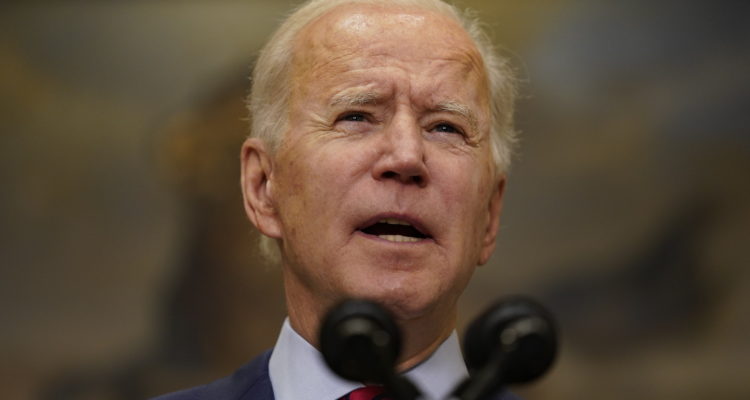The Biden administration may try to weaken the agreement by “pulling threads” from it, Kontorovich said.
By Batya Jerenberg, World Israel News
The Biden administration is going to work quietly against the Abraham Accords but the countries that have already signed on will stick with Israel due to their mutual fear of Iran, Prof. Eugene Kontorovich, a leading constitutional and international law expert, told a Zoom meeting Sunday sponsored by Women in Green.
“Nobody will say it’s bad for Israel to make peace with Arab countries,” said Kontorovich, who is also an authority on the Arab-Israeli conflict. But those who embrace the “two-state solution,” like the current White House, understand that the Abraham Accords completely contradicts their worldview.
Those who favor the two-state solution argue that the Palestinian problem must first be solved before peace between Israel and other Arab countries can take place. The Abraham Accords showed that not to be the case.
Biden team will weaken accords
The Biden administration may therefore try to weaken the agreement that normalized relations between Israel and the United Arab Emirates, Bahrain, Sudan and Morocco over the last several months of the Trump administration by “pulling threads” from it, Kontorovich said.
One such thread, he said, is nixing the sale of American F-35 stealth fighters to the UAE. Although the Trump administration approved the sale shortly after the Gulf country signed the accords, the deal is now under “review” by the oval office.
Kontorovich said that he didn’t think these kinds of moves would succeed in driving the UAE, or any country, from the Abraham Accords, as it would go against their self-interest.
Those interests are first and foremost protecting themselves from Iran.
“Persian Shia dominance is a nonstarter. It’s an existential issue for them,” Kontorovich said.
It is “ironic,” he added, that the person who most deserves to receive the Nobel peace prize for the Abraham Accords is former President Barak Obama. It was the Iran nuclear deal that he pushed for and approved that “created serious incentives for the Gulf states to come close to Israel, because they had no choice.”
According to Kontorovich, whichever approach the Biden administration takes toward Iran now, rapprochement between Arab countries and Israel will continue. If the U.S. is overly conciliatory to the expansionist Islamic Republic, they will band together in self-defense. But even if the U.S. takes a more hardline approach, the same logic that impelled these countries to finally have open relations with Israel will still be valid.
The accords were “extraordinarily significant” in two ways, he explained. Practically speaking, they opened the door for business and for “people-to-people contact.” Symbolically, they were even more important, he said, because they showed that peace with the Palestinians was no longer required for normalization between Israel and the Arabs.
The Gulf nations now consider the Palestinians “unsympathetic actors,” Kontorovich said, meaning that they have shown by their actions that they aren’t interested in statehood. The Arab states understand that Israel offered a state four times and was refused, so they have accepted the Palestinians’ “no” and decided to move forward in order to benefit themselves.
In his opinion, the Biden administration has not yet caught up to the new way of thinking in the region.
Who’s in charge in Israel?
In the context of the upcoming elections, Kontorovich was asked if the Abraham Accords affected Israel’s ability to implement its sovereignty over Judea and Samaria.
“Israel made no legally binding commitments” to anyone within the framework of the accords, and so “it did not tie its hands” in this matter, he said. It is an issue of domestic, internal Israeli politics, he continued, but Israeli governments thus far “have not had the desire to take on the issue. [They] are not giving it the gravity it deserves.”
“Sovereignty is a practice as much as it is a declaration,” he said. “You can declare sovereignty and not exercise it, and you can exercise it and not declare it.”
On the other hand, he added, “In Israel, the government isn’t actually the government. The ones sitting in the chairs” are not the people really running the country. Referring to a kind of Israeli deep state, but not in so many words, Kontorovich said that “bureaucratic entities” play “a very significant role,” as does the army, and they are “deeply ignoring” the question of sovereignty.
When asked what would happen if the Knesset passed a law on the issue, he acknowledged that the bureaucratic entities couldn’t stop it – but added that the Supreme Court and attorney-general could. This is because they believe there is some kind of higher, unwritten Israeli Law that they can access “intuitively,” he said.






